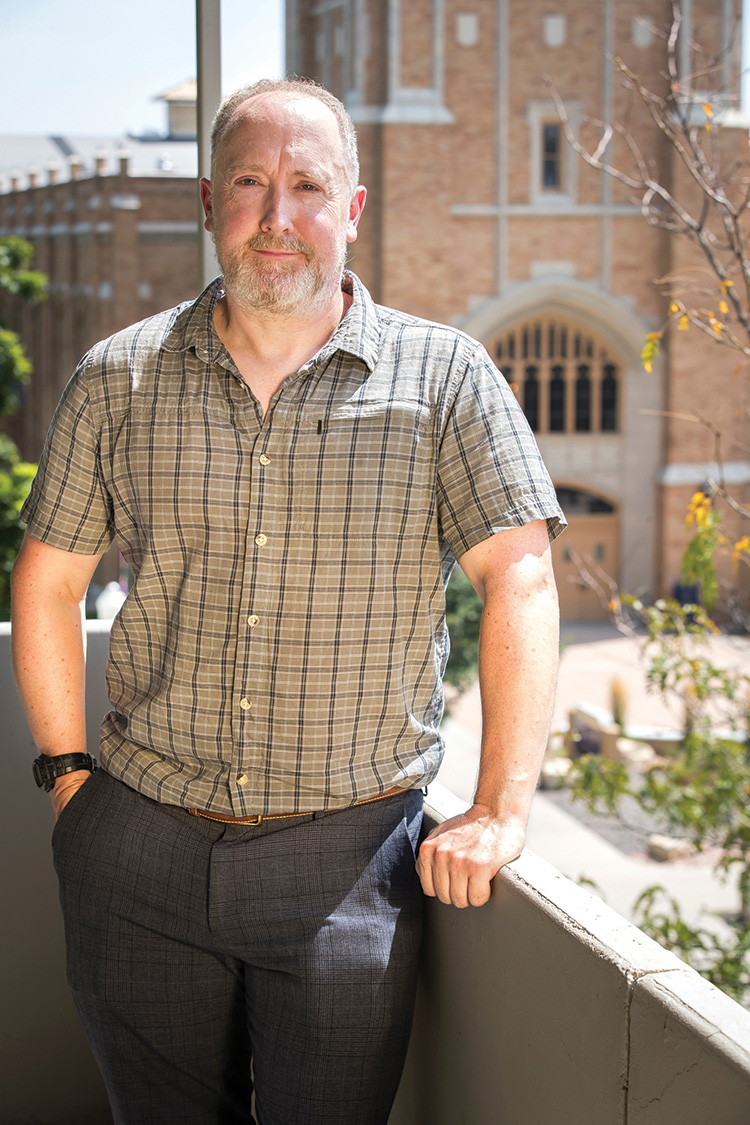Political Science Professor Receives Prestigious U.S. Fulbright Award
Political Science and International Affairs Professor Richard Bownas, Ph.D., first traveled from his hometown in the United Kingdom to Nepal in 1997 when he was 20 years old. At that time, the landlocked country in South Asia had just begun involvement in a civil war that would shift the country from a monarchy to a democracy.
“It was a real education [for me] because there was a Maoist insurgence happening, and some of the friends I made were really interested in that ideology,” Bownas said. “I also made friends from lower castes since there is a caste system in South Asia. They sometimes couldn’t go into the house where I was staying because the owner of the house was of higher caste. So, I saw all these interesting, troubling kinds of things.”
The experience ignited Bownas’ interest in social sciences, global development and inequality. Most importantly, it gave him a personal connection to Nepal.
In January, Bownas will be returning to the country. He was awarded a U.S. Fulbright grant, which will allow him to stay in Nepal for seven months to conduct an oral history project that will focus on the Nepalese Civil War.
Since 1946, the Fulbright Program has provided more than 400,000 participants from over 160 countries — chosen for their academic merit and leadership potential — with the opportunity to exchange ideas and contribute to finding solutions to challenges facing our communities and our world. The program is considered one of the most widely recognized and prestigious scholarships in the world.
“I’m going to be speaking to around 100 senior citizens in Nepal about their experience with democratic institutions in their local areas,” Bownas said. “I’ll be visiting many villages and rural areas because most Nepali people live in rural areas. I want to see whether Nepal becoming a democracy made a real difference to their lives at the local level.”
Witnessing world history as it unfolded during that first visit, Bownas realized there isn’t a lot of testimony written down or recorded about the governmental shift.
“I think I’m just about the only Western political scientist who focuses on Nepal,” Bownas said. “There are a lot of anthropologists studying Nepal because of the rich cultures [there]. So, they study the smaller cultures in the Himalayan Mountains who still stick to traditional beliefs and still have rare languages that are vanishing. But there are not many social scientists studying the big questions of democracy and development in Nepal.”
Bownas plans to transcribe the answers he gathers and publish them in Nepali and English language publications or academic work. The types of questions he’ll ask the locals will focus on political parties. For example, how do people get projects done in their villages, do they trust local officials and how have things changed over time?
“It’s a really interesting case study for a political science and social scientist of development, or maybe you could say failed development because it’s one of those places that has kind of fallen behind in terms of modernization and industrialization even though there is a lot of aid going to Nepal,” Bownas said. “Different governments have gone in with different strategies, but they often don’t seem to work.”
Bownas is grateful he’ll be able to share Nepali experiences and shine light on their history. He believes the stories he uncovers will allow that history to continuously be shared from one generation to the next.
—Sydney Kern


